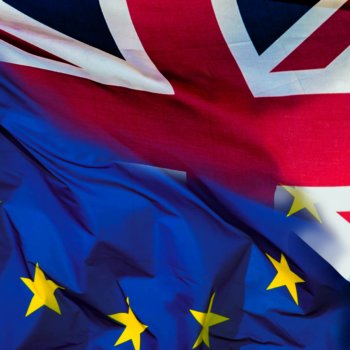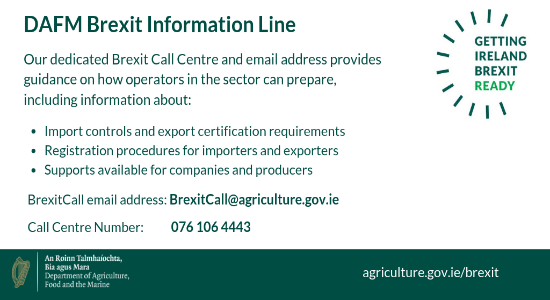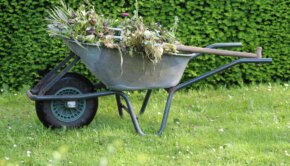Being Brexit ready

Brexit has brought about an air of uncertainty since its referendum on June 23, 2016. After almost three years of negotiations, the future of the UK's relationship with the EU is still unclear. It is imperative the trade does everything it can to be best prepared for any circumstance come October 31.
11 April 2019
Brexit has been at the forefront of political conversation for the better part of nearly three years, more so over the last six months.
The March 29 deadline came and went with an extension to April 12. On Wednesday night, the EU granted a further extension to the UK for Brexit, until October 31.
One might be forgiven for beginning to think that the uncertainty surrounding Brexit is never going to end, but with a stark warning from the EU for the UK to not “waste this time”, it feels like this really might be the final deadline.
The UK has six and a half months to work out its exit. While some may believe with this extension comes a renewed hope of an orderly Brexit, the threat of a no-deal Brexit still looms.
Crucially, this further extension also provides industry with the chance to ensure it is ready for all possible Brexit outcomes, orderly or not.
A few weeks ago we reported on the first Irish Hardy Nursery Stock Association (IHNSA) trade fair of the year at Uniplumo, at which Fiona McKenna of the Department of Agriculture, Food and the Marine’s (DAFM) Plant Health Division provided attendees with the latest information on new regulations for the plant trade, in particular in the case of a no-deal Brexit.
DAFM and Bord Bia have a wealth of information available for members of the trade to research and view in light of Brexit. As well as providing explanatory information surrounding Brexit, DAFM has setup the Brexit call centre, which members of the trade can contact to help get them Brexit ready.

There is important information available to the trade from DAFM available on its website as well, whereas Bord Bia’s Brexit Barometer is one to check out. Both resources will be found at the bottom of this article.
Registering with DAFM is important. If the trade wants to continue trading with the UK in plants or products of plant origin, the person responsible for the consignment must register with DAFM and comply with the appropriate EU Sanitary and Phytosanitary requirements for Third Country imports.
To register as a trader – importer and exporter – click here.
Applicants are required to complete the following forms to complete the registration process:
1. DAFM Plant Health Registration Form.
2. Corporate Client System (CCS) Form – Company.
or
3. Corporate Client System (CCS) Form – Individual or Sole Trader.
Note: Commercial traders should complete form 2, while private individuals or sole traders wishing to trade in plant or plant produce should complete form 3.
Information provided in the Corporate Client System Registration Form will be used to register importers of plant and plant products on the Department’s Financial Accounting System. This information will be utilised as part of a system of fees payable for the completion of inspections on imports as required under Article 13(d) of the Council Directive 2000/29/EC.
These forms must be completed and returned by post to the following address:
Horticulture & Plant Health Division
Department of Agriculture, Food and the Marine,
2nd Floor, Administration Building,
Backweston Campus,
Celbridge,
Co. Kildare.
W23 X3PH
and via email to: brexitregistration@agriculture.gov.ie.
On completion of the registration process, an importer will be notified of their unique Plant-Health Registration Number (PHR No). This unique PHR No will be required to be referenced by an importer in all applications for importation of plants and plant products.
Import controls
Sanitary and phytosanitary control inspections are required at EU/Third Country borders under EU law, on the protection of animal health, plant health and food safety. Such controls (referred to as official controls) apply to live animals and animal products, as well as plants and plant products entering the Single Market, and will have to be carried out on all such products coming from the UK.
These controls will have to be carried out at ports and airports which are designated as Border Inspection Posts (BIPs) or Designated Points of Entry (DPE).
Sanitary and Phytosanitary Controls: plant and products
- If you import plants or certain plant products from the UK you will need to apprise yourself of, and comply with, the EU regulations governing the imports of such products from Third Countries.
- This means that plants and plant products coming from the UK into Ireland must, after the UK leave the EU, be subjected to phytosanitary checks in accordance with the relevant regulations.
- Importers and exporters of such products must register with the Horticulture and Plant Health Division of DAFM as soon as possible and follow the steps necessary to allow the consignments and their accompanying documents to be inspected, as required.
- Pre-notification of imports of plants and plant products from the UK, must be submitted at least 24 hours before the consignment arrives at the point of entry in Ireland. Relevant plant health certificates must also accompany the pre-notification notices.
- If you are using wood packaging material, including pallets or crates in the importation and transport of your goods, ensure that they are International Standard for Phytosanitary Measure No. 15 (ISPM15) compliant.
- Details of regulated plants and plant products can be found here.
- Queries in relation to specific plants or plant products should be directed to plantandpests@agriculture.gov.ie.
- Additional details set out in this Information Note.
- In summary, if you are the person responsible for importing the plants or plant products from the UK, you are advised to:
- Register with DAFM’s Plant Health and Horticulture Division.
- Ensure that your supplier is in a position to supply the appropriate documentation.
- Make sure your transporter or haulier is in possession of the required EU authorisations.
- If you are using wood packaging or pallets with your consignments – then ensure that the wood packaging is ISPM15 compliant.
- For more, see Plant Health and Trade – Brexit.
Exports of animals, animal products, plants and plant products to the UK
- Plants and plant products will require a phytosanitary certificate in respect of each consignment. See Export Certification.
New Official Controls legislation
- However, from December 14, 2019, all official controls and other official activities performed to ensure the application of food and feed law, rules on animal health and welfare, plant health and plant protection products will be governed by a new Regulation – Regulation 2017/625.
Customs
Members of the trade are also reminded that, once the UK exit the EU, customs formalities will commence for all existing and new traders with the UK. As a result, such traders will be required to make customs declarations and will therefore need to register for an Economic Operator Registration and Identification (EORI) number. Registration with Revenue for this number should be completed as soon as possible at Revenue.ie.
DAFM has a wealth of information on their website and is the key source in this article. It is important that the trade ensures it as ready as possible for Brexit – whichever form it takes come October 31.
Ireland is in a unique position as the only EU country to share a land border with the UK. As such, it presents our industry with an even greater challenge in determining future procedures and what trade across the border will look like.
The best the trade can do as of now, is ensure it is registered with DAFM as a trader. For those not Brexit ready, this extension provides an opportunity for them to ensure that they are. The Brexit Call Centre, set up by DAFM, is a powerful tool that is available to the trade.
Being Brexit ready is imperative for any business.
Resources:
- For import and export procedures, as well as registration: https://www.agriculture.gov.ie/farmingsectors/planthealthtrade/brexit/.
- Bord Bia Brexit information: https://www.bordbia.ie/corporate/press/Pages/ukMarketInformation.aspx.



 Print
Print









Fans 0
Followers